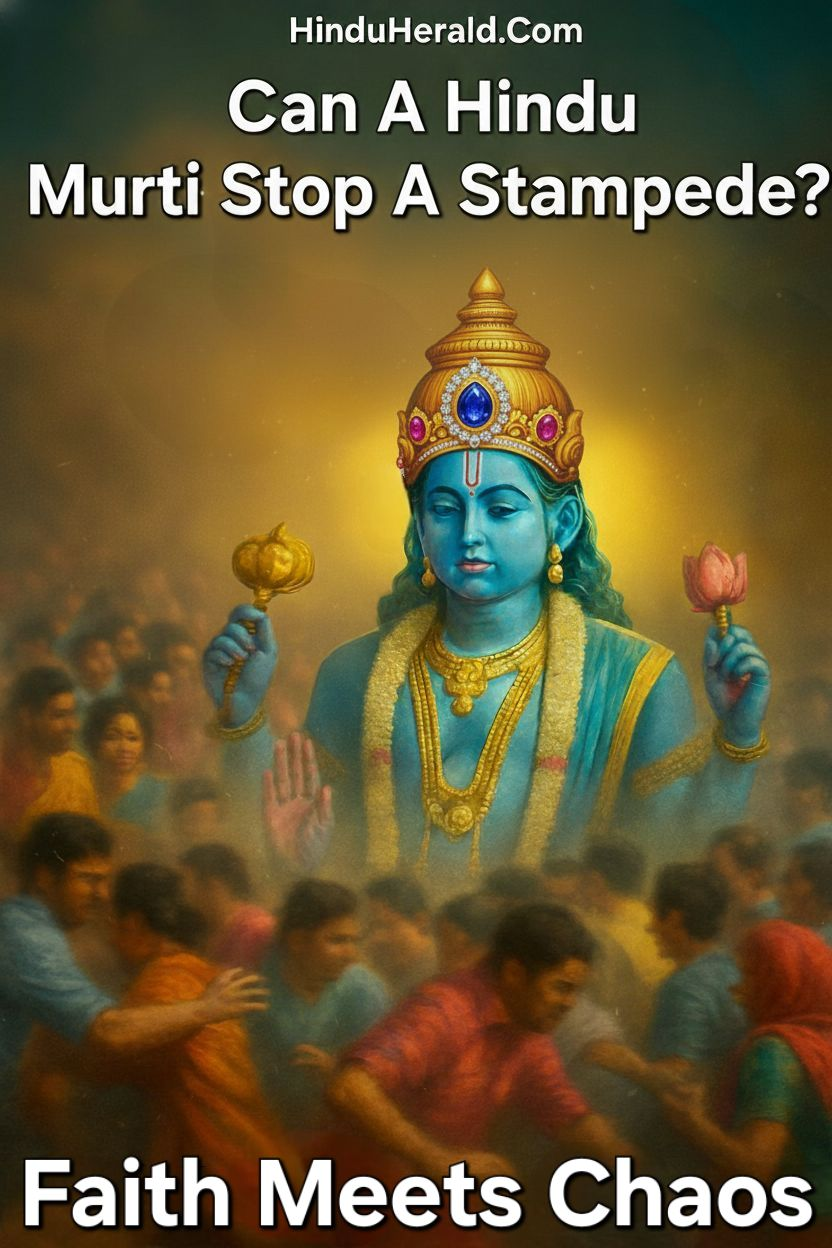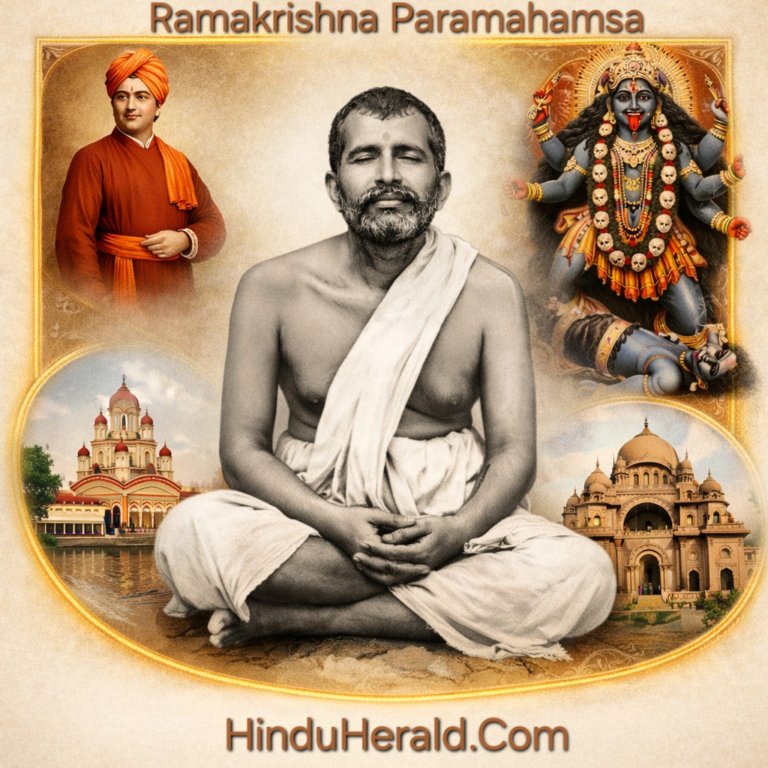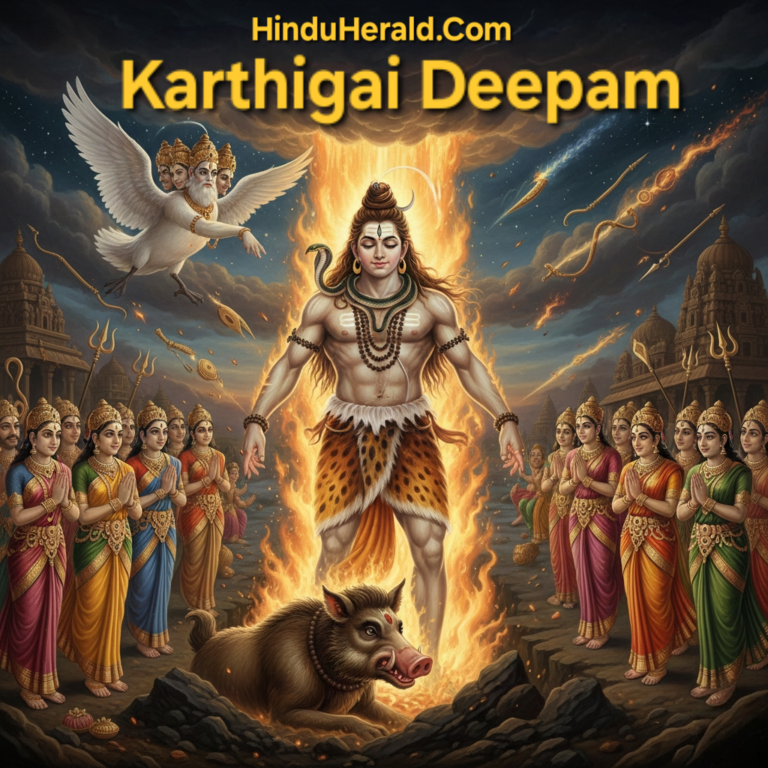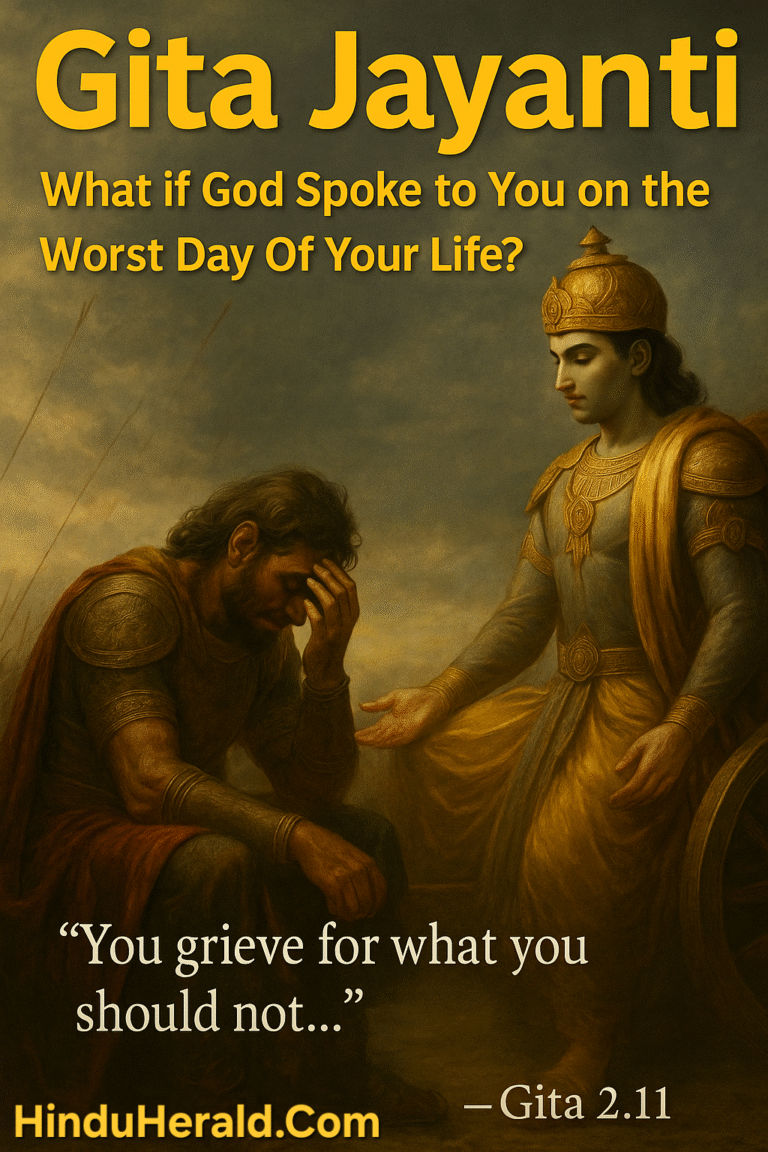
Why Hindu Gods Don’t Stop Stampedes
— A Dharmic Response to a Difficult Question
After the recent Andhra Pradesh temple stampede, anti-Hindu trolls flooded the internet with mockery:
“Your idols didn’t protect you! Why didn’t they save anyone?”
This isn’t just insensitive—it reveals a deep misunderstanding of what Hinduism actually teaches about the divine, free will, karma, and the laws of the physical world.
🕉️ We Don’t Worship Idols
Let’s start here:
Hindus don’t worship “idols.” We worship murtis—sacred forms of God that have undergone prāṇa pratiṣṭhā, a ritual that invokes the spirit of God into the image. These are not lifeless statues, but living embodiments of divinity.
That said, a murti is not a superhero, nor a security system. The divine is present—but not obligated to override our choices or consequences.
📿 Core Response
God is not a bodyguard whose job is to override every consequence of human action.
Hindu theology teaches karma, free will & individual responsibility. When people panic, push, cause chaos or mismanage crowds – humans are the cause. Blaming God for human negligence is childish.
People cry out, “Where was God?” in their grief— and understandably so. But if God intervened every time something bad was about to happen due to human negligence, then the law of karma would collapse. For every action, there is an equal and opposite reaction. If you push, someone falls. That’s not divine cruelty — it’s cosmic law.
⚖️ Karma, Not Magic, Rules the World
Spiritual places are not immune to physics
Temples are sacred spiritually, but not magically protected from:
- overcrowding
- panic behavior
- bottlenecks
- heat
- stampede dynamics
Physics continues to operate.
🕯️ No World Religion Promises “No Tragedy Near the Sacred”
Sadly, tragic crowd disasters have occurred at:
- large pilgrimages
- major festivals
- religious gatherings across multiple faiths
We don’t use those tragedies to mock other religions.
We understand the truth: crowd density + panic = danger.
🌀 Karma Exists
Karma (cause and effect) is not paused because a building is sacred.
Violating order creates suffering—even in holy places.
It’s a law, like gravity.
🧠 Apply This Logic Consistently
If you say:
“If something bad happened near a murti, the deity is false”
Then you must also claim:
- tragedies at mosques disprove God
- tragedies at churches disprove God
- tragedies at synagogues disprove God
Nobody logically argues that.
Why?
Because human behavior, not theology, causes stampedes.
🛡️ A Murti Is Not a Force Field
Temples are not amusement parks with safety guarantees. They are places to seek liberation, not protection from the laws of nature.
A murti is the presence of the Lord—not a magic shield that blocks physics and crowd behavior.
Even when God is present, karma still functions. Humans still bear responsibility. Accidents rooted in mismanagement or lack of discipline are not “proof against God”—they are calls for better human behavior.
🔥 The Law of Karma Is Not Suspended
Hindu gods are not vending machines that dispense miracles on demand.
They uphold dharma. If humans violate order, harm follows. Blaming the deity is ignorance.
Just as standing near fire without respect burns you,
standing in a crowd without discipline crushes you.Divinity remains. Human carelessness causes tragedy.
🛕 Final Thought
When tragedy strikes in a temple, we grieve—but we do not lose faith.
Because Hinduism teaches that the highest gift of the divine is not immunity from death—but freedom from rebirth.
Our gods don’t stop stampedes.
They stop reincarnation.
© Hindu Herald
All Rights Reserved



